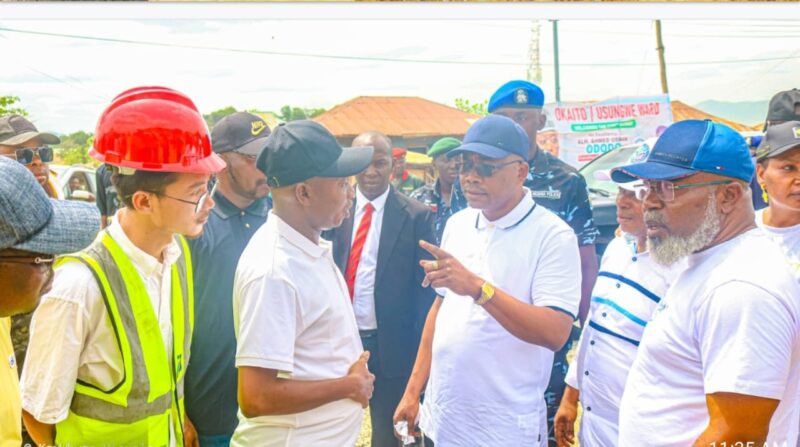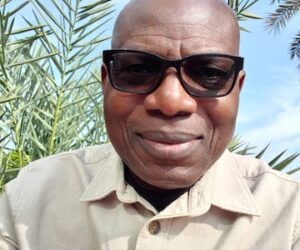

Kogi’s new governor seems to have misplaced the Nigerian politician’s instruction manual. He rather not shout, seems alarmingly uninterested in pubic shows.
Instead, Ahmed Usman Ododo spends his days poring over progress charts. In a country where politics is often theatre, he appears to have chosen the role of the stage manager — invisible, precise, and yet indispensable.
Ododo, a former auditor and accountant , governs as though allergic to auphoria . To a political class accustomed to slogans and ceremony, this managerial minimalism is disconcerting. Kogi’s quiet transformation is being built on spreadsheets, steady payments, and restoration of workers hope .
The Arithmetic of Stability
Ododo’s most visible success lies in the arithmetic of governance. Within his first year, the government announced that it had cleared about ₦98.8 billion in accumulated debts—arrears owed to contractors, pensioners, and various agencies. Whether every figure holds under audit matters less than the signal it sends; fiscal discipline, prompt payment of salaries pensions. After thirteen years, leave bonuses for workers have resumed.
More striking was his decision to approve a minimum wage higher than the federal benchmark—a gesture that re-centres welfare in a system long dominated by austerity. Rather than boast about reforms, Ododo let the monthly alerts on workers’ phones do the talking. For thousands of families, the reliability of income has brought a new calm. The governor’s obsession with regularity, says one finance official, “is less about politics and more about dignity.”
Kogi’s fiscal order has also improved transparency. Payment schedules are published; procurement processes, though still imperfect, are more open. By imposing strict cash management and renegotiating debt lines, the administration has built liquidity to fund public works without excessive borrowing. In a country where many states survive on overdrafts, this alone marks a small revolution.
Building Without Hassle
Ododo’s approach to infrastructure is as methodical as his accounting. Rather than chase one or two monumental showpieces, he opted for a broad-based rollout: ten kilometres of township roads in each of the twenty-one local government areas. The logic is simple—spread impact, not headlines.
Across Lokoja, Ankpa, Kabba, and Okene, new roads and drainage systems are under construction. For commuters, it means shorter journeys and less flooding; for farmers, easier access to markets. The governor has resisted the Nigerian temptation to concentrate development in the state capital. Each local council, he insists, “must see government presence in its soil, not only in the gazette.”
Beyond roads, Ododo’s team has launched or completed several structural landmarks. At Kogi State University, Kabba a new administrative complex and modern faculty buildings are rising, part of a plan to improve tertiary learning conditions. At Confluence University of Science and Technology, Osara, fresh laboratories,hostels and lecture halls now stand where bushland lay two years ago.
The state has also embarked on larger ventures designed to reshape its economic geography. The Kogi International Market—now under development in Lokoja—aims to become a regional trading hub for agricultural produce and manufactured goods. Plans for a Kogi Airport and a Free Trade Zone are moving through design stages, with feasibility studies highlighting the state’s central position as Nigeria’s logistical bridge between north and south. These projects, if realised, could turn Kogi into an inland commercial gateway.
Perhaps the most tangible progress, however, is at the grassroots. Over the past few months, Ododo has commissioned dozens of Primary Health Centres (PHCs) in rural communities. Each facility—solar-powered, water-supplied, and modestly equipped—serves as a lifeline for villages once dependent on distant hospitals. For mothers and children, the difference is not rhetorical: it is the difference between access and absence.
A Welfare State in Miniature
The governor’s emphasis on people-centred governance has extended to education and healthcare, two sectors often left in the shadows of Nigerian politics. His government reaffirmed free basic and secondary education, backed by public funding rather than proclamations. The state has paid over ₦600 million in West African Examination Council (WAEC) fees for more than 18,000 final-year students—later expanding the scheme to twice that number. Teachers’ attendance is now monitored digitally in some pilot schools, part of a broader push to restore classroom discipline.
Health care has seen an equally deliberate renewal. The Kogi State Health Insurance Scheme, previously limited to civil servants, now covers more than 255,000 residents, including pensioners and students. To stem the exodus of medical staff, Ododo approved a ₦300,000 monthly incentive for doctors—a policy that has already slowed departures. By focusing on retention rather than replacement, he is strengthening human capacity from within.
These social policies lack the grandeur of mega projects, yet they carry quiet potency. They target the anxieties of daily life—school fees, hospital bills, unpaid wages—and replace them with predictability. For ordinary citizens, predictability is development.
Planting for Tomorrow
Kogi’s fertile plains have long made it one of Nigeria’s agricultural jewels, though much of that potential lies untapped. Ododo’s government is trying to change that equation. Over 10,000 farmers have received improved seedlings, fertiliser, and farm tools through the state’s partnership with the International Fund for Agricultural Development (IFAD). The administration is encouraging cooperatives for rice, cassava, and cashew cultivation, pairing input support with guaranteed off-take.
The African Development Bank’s selection of Kogi for an Agro-Industrial Processing Zone (SAPZ) is a strategic win. The facility, when completed, will process farm produce locally, cutting post-harvest losses and boosting value addition. Ododo’s long-term vision is to shift the state from a civil-service economy to an agro-industrial one. “Agriculture is not only about food,” he said recently. “It is about jobs, exports, and dignity.”
Securlty Changes and Coordination
Security remains the quiet spine of Ododo’s governance. Kogi’s geography—bordering nine states and bisected by major highways—makes it a target for kidnapping and banditry. Instead of centralised rhetoric, the governor has pursued decentralised vigilance. He approved the recruitment of 1,050 community hunters—fifty from each local government—to assist formal agencies in intelligence gathering and patrol.
This network of local defenders, backed by stipends and basic equipment, has challenged the criminals in their planned onslaught in rural roads and farm belts. Ododo meets regularly with security chiefs, reviewing operations . “Security,” he told one meeting, “is like silence,you only notice it when it disappears.”
The Method in the Modesty
Ododo’s administration may appear colourless. Yet, within that quietness lies method. The governor operates as an administrator first and a politician second. Files move fast; excuses move slowly. His public appearances are sparse, his press statements measured. When he speaks, he favours numbers over narratives. This managerial temperament has filtered down through the bureaucracy, where punctuality is suddenly fashionable again.
His appointees describe a governor who listens more than he lectures. “He will not scold you in public,” one senior aide confides, “but he will remember the deadline you missed.” Such discipline, in a system long plagued by inertia, is producing a new administrative culture—one that values consistency over charisma.
Critics argue that the government’s communication is too restrained, that achievements are under-reported. But that, too, may be deliberate. Ododo seems content to let performance advertise itself. For a state fatigued by endless slogans, this understatement may be its own kind of reform.
The Long Game
Kogi’s progress remains fragile. Inflation continues to squeeze households, internal revenue is modest, and the state’s ambitious projects will require careful financing to avoid a return to debt. The planned airport and trade zone must attract credible investors, not just ceremonial ground-breakings. The challenge for Ododo’s government will be to turn efficiency into enterprise—to convert its administrative calm into economic dynamism.
Yet the foundation is firm. The state’s payroll is stable; its roads are improving; schools and hospitals are functioning; and citizens sense a measure of order returning to public life. In Nigeria’s often chaotic federation, that counts as success.
Kogi’s quiet revolution is still a work in progress. But if Ahmed Usman Ododo maintains his discipline and keeps faith with his arithmetic of hope, the state could become a model for how governance—done with patience, purpose, and prudence—can rebuild confidence in politics itself.
Abubakar Momoh PhD, Public Commentator lives in Lokoja.








